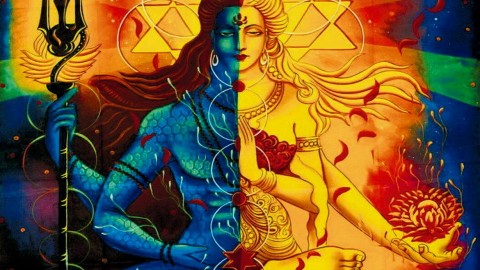Self-Awareness Is Difficult – In Gita Verse 1.26 There Arjuna could see, within the midst of the armies of both parties, his fathers, grandfathers, teachers, maternal uncles, brothers, sons, grandsons, friends, and also his fathers-in-law and well-wishers.
Arjuna, a warrior by nature and training, was not inherently troubled by the concept of war or violence. His entire life’s teachings and values, or Samskaar, were centred around the principles of warfare. However, it is important to understand that a mind inclined towards violence often harbours deep attachments. Violence and attachment coexist, whereas a non-violent mind transcends such attachments.
Upon seeing the armies arrayed before him, Arjuna was profoundly shaken. The verse from the Bhagavad Gita states that Arjuna could see, amidst the armies of both parties, his fathers, grandfathers, teachers, maternal uncles, brothers, sons, grandsons, friends, and also his fathers-in-law and well-wishers. This observation signifies that Arjuna was overwhelmed by the personal connections he had with those present on the battlefield. He was unable to maintain an objective perspective and was drawn into a subjective emotional turmoil. Krishna, his charioteer, had his own reservations about Arjuna’s ability to remain neutral in the face of such personal ties.
Maintaining awareness in such situations is challenging. It is far easier to slip into unconsciousness and become a part of the objective world, losing one’s individual subjectivity. When Arjuna chose Krishna as his charioteer over the entire Narayani Sena, it was on the condition that Krishna would neither fight nor wield any weapons. Arjuna understood that the war was not merely about winning or losing or showcasing strength; it was about conveying a universal message to humanity – that it is possible to fight without enmity. The Mahabharata war was unique in that the Pandavas fought without harbouring enmity. By choosing Krishna, Arjuna prioritised the universal message over his personal desire to win Indraprastha. The Pandavas did not seek to conquer Hastinapur; they only wanted their rightful share of land, Indraprastha.
Transformation from unconsciousness to awareness is arduous but essential. There are various methods to cultivate awareness, yet the necessity of awareness itself remains paramount. Just as darkness can only be dispelled by light, unconsciousness can only be transformed through awareness. Darkness is merely the absence of light, and similarly, unconsciousness is the absence of consciousness. It is not a positive entity in itself; it signifies a lack of consciousness. The term ‘unconscious’ simply indicates the absence of consciousness.
When we speak of darkness, it might seem like a tangible entity, but it is not. You cannot interact with darkness directly; you must address it through light. If you want to eliminate darkness, you must introduce light – Go Via Light. Conversely, if you want darkness, you must remove light. This principle applies to unconsciousness as well; you must cultivate awareness to dispel unconsciousness.
By choosing Krishna, Arjuna brought light into his situation. In Indian tradition, the presence of a living master or Guru is highly valued. A master’s blessing is considered immensely significant. Finding a master requires great receptivity, akin to a feminine openness. When a living master is present and one is receptive, a profound connection occurs. This is an experiential phenomenon, deeply rooted in love and beyond logical proof. One cannot prove the discovery of a master to others; it is a personal, heartfelt knowledge.
It is crucial to remember that ultimately, self-transformation is an individual responsibility. A master’s true function is to teach self-mastery. A master does not seek to create dependence but encourages self-reliance. The mind, however, often seeks dependence, longing for a father or mother figure to guide and support. A master can only point the way, like a finger pointing to the moon, but the mind may cling to the finger instead of looking at the moon.
Arjuna was acutely aware of his own vulnerabilities. He recognised that only Krishna could assist him in overcoming his Unconscious state.
Tags: Self-Awareness Is Difficult





